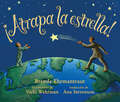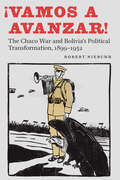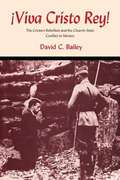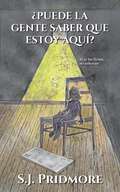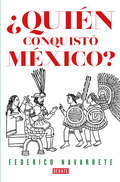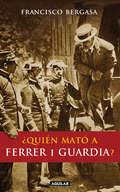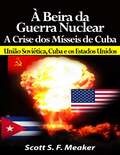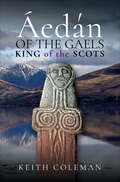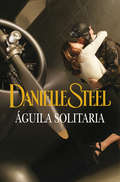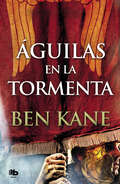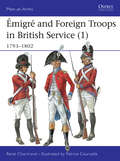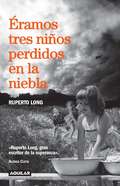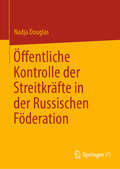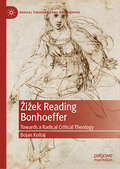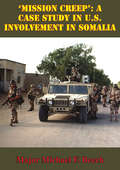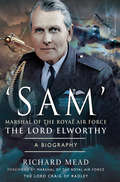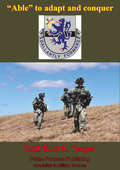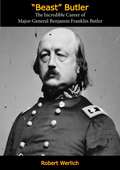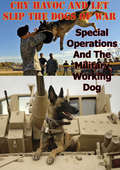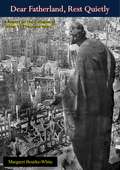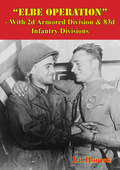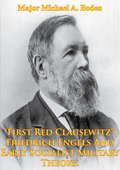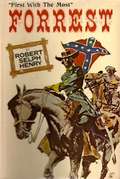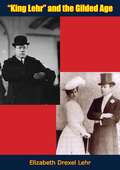- Table View
- List View
¡Atrapa la estrella!
by Brenda Ehrmantraut—No será el mismo juego que solíamos hacer, sino algo muy especial cada atardecer. Cuando un soldado se tiene que ir al otro lado del mundo por su trabajo, él y su hijo juegan a tirar y atrapar la Estrella del Norte. ¡Atrapa la estrella! es una historia clásica que ayudará a las familias a sentirse cerca, aun cuando están lejos. La edición original en inglés, Night Catch, ha sido un título preferido desde el 2005. “... ¡Night Catch es lo mejor de lo mejor!” —Sally Ann Zoll, Directora General, United Through Reading “... un libro elemental en nuestro programa para padres ... ¡Lo recomendamos con entusiasmo!” —Military Child Education Coalition ~ “Not ball as usual in the park, but something special after dark.” When a soldier has to go to the other side of the world for his work, he and his son play a game with the North Star. ¡Atrapa la estrella! is a timeless story that helps families feel connected, even when they are separated. The English edition, Night Catch, has been a favorite since 2005! “... Night Catch is the best of the best! —Sally Ann Zoll, CEO, United Through Reading “... a staple in our Parent to Parent Program … We enthusiastically recommend it! —Military Child Education Coalition
¡Vamos a avanzar!: The Chaco War and Bolivia's Political Transformation, 1899–1952
by Robert NiebuhrIn ¡Vamos a avanzar! Robert Niebuhr argues that despite widespread corruption, a lack of skills, and failed policies, Bolivian leaders in the first half of the twentieth century created a modern state because of the profound role of warfare over the Chaco. When President Daniel Salamanca hastily thrust his isolated and poverty-stricken country into the devastation of the Chaco War against Paraguay in 1932, he unleashed a number of forces that had been brewing inside and outside of Bolivia, all of which combined to bring Bolivia a truly modern national identity and state-building program. This conflict was the defining moment whereby rhetoric and populism took on a broader meaning among the newly mobile populace, especially the Indigenous war veterans, as the Bolivians proclaimed, ¡Vamos a avanzar! (Let&’s move forward!). With the final revolution of 1952, politics in Bolivia became more modern than they had been in the period of the Chaco War or during the populist leanings of all post-1899 governments. Niebuhr offers a fresh contribution, showing the importance of the turbulent populist politics of the period after 1899 and the significance of the Chaco War as the most influential revolutionary event in modern Bolivian history.
¡Viva Cristo Rey! The Cristero Rebellion and the Church-State Conflict in Mexico
by David C. BaileyBetween 1926 and 1929, thousands of Mexicans fought and died in an attempt to overthrow the government of their country. They were the Cristeros, so called because of their battle cry, ¡Viva Cristo Rey!—Long Live Christ the King! The Cristero rebellion and the church-state conflict remain one of the most controversial subjects in Mexican history, and much of the writing on it is emotional polemic. David C. Bailey, basing his study on the most important published and unpublished sources available, strikes a balance between objective reporting and analysis. This book depicts a national calamity in which sincere people followed their convictions to often tragic ends.
¿Puede la gente saber que estoy aquí?
by S. J. PridmoreLa niña no entiende por qué le ha tocado vivir una vida tan cruel. Mientras, una joven madre se ve obligada a tomar una decisión imposible para salvar su vida y la de sus hijos. Ambas se encuentran solas en medio de un mundo hostil. Necesitan seguir libres si quieren sobrevivir. Porque jamás volverán si se las llevan, y es posible que el impetuoso espíritu que comparten no sea suficiente. Será necesaria la intervención de amables extraños y un golpe de suerte si han de tener alguna posibilidad de encontrar santuario. Sin embargo, son muchas las adversidades. Y no todos los extraños serán amables. Basado en una historia real.
¿Quién conquistó México?
by Federico NavarreteLos españoles no conquistaron México-Tenochtitlan: fueron decenas de miles de indígenas, movidos por sus propios intereses y encabezados por líderes que, sistemáticamente, condujeron a Cortés a cumplir sus propios fines con todo éxito. En este ensayo -tan certero como revolucionario y agudo- el historiador Federico Navarrete hace un repaso vibrante y seductor de lo ocurrido hace exactamente 500 años: desmonta los poderosos mitos creados a lo largo de las centurias, explica la complejidad del proceso colonizador y ofrece decenas de argumentos y razones que permiten responder, por fin, una pregunta que todavía le duele a nuestra identidad: ¿quién conquistó México? Al responderla, se entiende que la visión simplista de la conquista española surgió mucho tiempo después, y ha servido, hasta la fecha, para fomentar la discriminación y la desigualdad en México.
¿Quién mató a Ferrer i Guardia?
by Francisco BergasaEn un tiempo en el que la memoria histórica reclama un lugar parecía obligado aprovechar el centenario de aquel escándalo para reivindicar la inocencia de su protagonista. El 13 de octubre de 1909, hace ahora exactamente cien años, moría fusilado en el castillo de Montjuïc el pedagogo, anarquista y librepensador catalán Francisco Ferrer i Guardia, condenado a la última pena en virtud de una polémica sentencia que lo consideró «autor y máximo responsable» de los sucesos revolucionarios conocidos históricamente como la Semana Trágica. Con la ejecución de Ferrer i Guardia la España dogmática e intransigente, encarnada en el Gobierno de Maura, pretendió saldar, en un controvertido ajuste de cuentas, la deuda que con ella tenía contraída el creador de la Escuela Moderna, cuyas ideas políticas y pedagógicas representaban un ataque frontal a los valores defendidos por el sistema canovista. Y para ello no dudó en instruir un proceso arbitrario y tendencioso, viciado en todos y cada uno de sus autos, y falto de las más indispensables garantías jurídicas, que desembocó en un fallo escandaloso, considerado por historiadores y juristas como uno de los más flagrantes errores judiciales de la historia moderna. Ferrer i Guardia fue la cabeza de turco elegida por quienes defendían el eufemismo de la «revolución desde arriba» para advertir a los que la intentaban «desde abajo» del alto coste que suponía disentir de un régimen ineficaz y caduco empeñado en perpetuar sus prerrogativas, al que la injusta muerte de aquél dio el golpe de gracia en el proceso de su desintegración definitiva. En un tiempo en el que la memoria histórica reclama un lugar junto a la verdad oficial, dispuesta siempre interesadamente a olvidarla, parecía obligado aprovechar el centenario de aquel escándalo judicial para reivindicar la inocencia de su protagonista. Y acercar, a la vez, hasta el lector toda una suerte de prácticas perversas (la instrumentalización de la Justicia, la intromisión de la Iglesia en el orden civil, el servicio de la propaganda mediática al descrédito del adversario o la inevitable y perenne confrontación de las dos Españas), tan presentes en la causa aquí investigada, y que continúan plenamente vigentes un siglo después de aquellos hechos.
À beira da Guerra Nuclear: Crise dos Mísseis de Cuba - União Soviética, Cuba e os Estados Unidos
by Scott S. F. Meaker Aleff E. Oliveira & Jonathan R. SantosDurante os anos 50, o grande medo era a guerra nuclear. Do ponto de vista da União Soviética, ter um reduto comunista tão perto da fronteira norte-americana era um sonho realizado. Até o início dos anos 60, houve uma forte corrente de tensão entre os americanos e os soviéticos. Além da perda desastrosa de vidas e dignidade na Baía dos Porcos, muitas outras coisas ocorreram. A linha foi firmemente traçada na areia. O mundo estava à beira de uma guerra nuclear.
Áedán of the Gaels: King of the Scots
by Keith ColemanThis is the first full-length work devoted to Áedán mac Gabráin, 6th century king of Dál Riata in Scotland. An associate of the famous St. Columba, he was the first recorded king to be ordained in the British Isles and was the most powerful ruler in his generation. His astonishing military reach took him from Orkney, Pictland, Ireland, Northumbria and the Isle of Man. This book details his dominant career, which came to a shattering end after decades of warfare at the Battle of Degsaston in AD 603. Beyond the record of warfare, there is a unique and tantalising accumulation of legend concerning Áedán, from stories about his birth, to tales of him in battle with Irish heroes. English sources mention him and he is one of the few Gaelic kings to feature prominently in Welsh tradition, where he is remembered as a uniquely powerful player in the north of Britain. Modern writers highlight Áedán as the father of a prince named Arthur, which has led to his place in Arthurian studies. Áedán’s prominence in his era qualifies him as a fascinating figure, whose life and legend are accessibly explored in this exciting account of this unique ruler.
Águila solitaria
by Danielle SteelRomance y aventura, desde los tiempos de la Segunda Guerra Mundial, cuando la joven Kate se enamora perdidamente de un intrépido aviador. Desde la noche que lo conoció, en un baile de sociedad en diciembre de 1940, Kate Jamison supo que Joe Allbright había entrado en su vida para no salir nunca más. De inmediato se sintió atraída por aquel famoso aviador mayor que ella, en quien adivinó a alguien especial, poco corriente, brillante y lejano a un tiempo, como una estrella. En los meses que siguieron a su primer encuentro, un vínculo se fue estrechando entre ambos, tan fuerte que ni el estallido de la guerra, ni las peligrosas misiones de Joe bajo el cielo de Europa, ni la oposición de la familia de Kate podrían romper. Pero, al acabar la guerra, Kate tuvo que aceptar que su deseo de casarse y formar una familia no tenía cabida en la vida y los sueños de Joe, cuya auténtica pasión era volar. Debía tomar una decisión, encontrar su propio camino... sin saber que nadie puede escapar a su destino.
Águilas en la tormenta
by Ben KaneLa magnífica conclusión de la trilogía «Águilas de Roma», la saga de género histórico que relata de forma emocionante uno de los acontecimientos más relevantes de la historia del Imperio Romano. Año 15 d.C. El jefe Arminio ha sido derrotado, una de las águilas romanas recuperadas y miles de guerreros de las tribus de Germania masacrados. Sin embargo, para el centurión Lucius Tullus estas victorias no son, ni mucho menos, suficientes. No descansará hasta que el propio Arminio muera, el águila de su legión sea recuperada y las tribus enemigas totalmente exterminadas. Por su parte, Arminio, taimado y valiente, también busca venganza. Más carismático que nunca, consigue reunir otro gran ejército tribal que acosará a los romanos a lo largo y ancho de sus territorios. Muy pronto, Tullus se encuentra en un hervidero de violencia, traiciones y peligros. Y la misión para recuperar el águila de su legión se revelará como la más peligrosa de todas. Reseña:«Ben Kane es un maestro de la ficción militar. Una trilogía poderosa.»The Times
Águilas en la tormenta
by Ben KaneLa magnífica conclusión de la trilogía «Águilas de Roma», la saga de género histórico que relata de forma emocionante uno de los acontecimientos más relevantes de la historia del Imperio Romano. Año 15 d.C. El jefe Arminio ha sido derrotado, una de las águilas romanas recuperadas y miles de guerreros de las tribus de Germania masacrados. Sin embargo, para el centurión Lucius Tullus estas victorias no son, ni mucho menos, suficientes. No descansará hasta que el propio Arminio muera, el águila de su legión sea recuperada y las tribus enemigas totalmente exterminadas. Por su parte, Arminio, taimado y valiente, también busca venganza. Más carismático que nunca, consigue reunir otro gran ejército tribal que acosará a los romanos a lo largo y ancho de sus territorios. Muy pronto, Tullus se encuentra en un hervidero de violencia, traiciones y peligros. Y la misión para recuperar el águila de su legión se revelará como la más peligrosa de todas. Reseña:«Ben Kane es un maestro de la ficción militar. Una trilogía poderosa.»The Times
Émigré and Foreign Troops in British Service
by Rene Chartrand Patrice CourcelleFollowing the Revolution in 1789, members of the aristocracy were increasingly persecuted, and many of them fled abroad. These exiles became known collectively as 'émigrés', and despite initial confusions and indecision, many of them were taken into British service. This fine text by René Chartrand examines the organisation, uniforms and insignia of the Émigré troops in British service from 1793 to 1802, accompanied by plenty of illustrations including eight full page colour plates by Patrice Courcelle.
Éramos tres niños perdidos en la niebla
by Ruperto LongInspirado en hechos reales, con el Holocausto y la Segunda Guerra Mundial como telón de fondo, Ruperto Long construye una novela apasionante y emotiva, cuyo ritmo vertiginoso no da respiro, y que es sin duda una celebración del poder de la amistad, la solidaridad, el amor y la tenacidad, cuando se enfrentan a circunstancias extraordinarias. En el verano de 1938, tres niños procedentes de diferentes regiones de Europa comparten juegos y amistad durante sus vacaciones. Sin embargo, saben que una amenazadora tormenta se cierne sobre ellos y sus familias. Deciden entonces hacer una promesa indeleble: serán amigos para siempre, no importa lo que pase. Los años siguientes estarán marcados por acontecimientos increíbles, hechos de inmensa crueldad que jalonan una de las épocas más trágicas en la historia de la humanidad. Aquellos amigos del verano, Lizzy, Alex y Riki, se verán teniendo que sobrellevar desafíos que pondrán a prueba su coraje, voluntad y entereza. Son niños empujados a sobrevivir en un mundo de adultos al que no pueden comprender, signado por el odio y la injusticia. El camino que cada uno de ellos recorrerá deberá sortear dificultades y penurias; pero también conocerán el abrazo de aquellos héroes anónimos que se jugarán la vida por ayudarlos. Este libro es asimismo un homenaje a todos ellos.
Öffentliche Kontrolle der Streitkräfte in der Russischen Föderation
by Nadja DouglasDer Band befasst sich mit den Grundlagen der gegenwärtigen Beziehungen zwischen zivilen Akteuren und staatlichen Machtstrukturen. Der Schwerpunkt liegt auf dem Themenfeld der öffentlichen Kontrolle von Streitkräften und der Frage, warum zivile Akteure ein wachsames Auge auf die militärische Institution sowie zivile Behörden, die den Einsatz von Gewalt legitimieren, haben sollten. Am Beispiel von Wehrpflicht und Rekrutierung als Schnittstelle zwischen Militär und Gesellschaft analysiert die Studie den institutionellen Wandel im politisch-militärischen Bereich im postsowjetischen Russland. In kritischer Auseinandersetzung mit der konventionellen Militärsoziologie verlagert das Buch den Fokus weg von der exklusiven Machtbeziehung zwischen politischen und militärischen Eliten im Kontext der nationalen Sicherheit. Stattdessen berücksichtigt es die menschliche und gesellschaftliche Sicherheit, d.h. die Bedürfnisse und Forderungen von Individuen und Gruppen an der Basis, die vom Militär und der herrschenden Sicherheitslage in Russland betroffen sind. Das Buch richtet sich an Leser mit Interesse an zivil-militärischen Beziehungen, gegenwärtiger russischer Gesellschaftspolitik und Theorien sozialer Bewegungen.
Žižek Reading Bonhoeffer: Towards a Radical Critical Theology (Radical Theologies and Philosophies)
by Bojan KoltajThis book critically examines Bonhoeffer’s social theology in Sanctorum Communio from the perspective of Žižek’s theological materialism. Specifically, it refers to Žižek’s struggling universality of abandonment and its ethic of indifference in consideration of Bonhoeffer’s transcendental personalist community of saints and its ethic of universal love. As such, it represents an attempt to reflect on the content, act, and implication of theological thought without presuppositions and an argument for the necessity of such an approach—a radical approach that is true to theology’s critical character of challenging narratives and revealing exceptions in search of truth.
‘Mission Creep’: A Case Study In U.S. Involvement In Somalia
by Major Michael F. BeechThis monograph explores the problem of mission creep. The trend toward ethnic and regional unrest has characterized the world security environment since the breakup of the former Soviet Union. The U.S. has struggled to find its place in the new world order. As a result US military forces have increasingly found themselves involved in various operations other than traditional warfare. Often the political aims of these operations are difficult to identify and translate into military operational objectives and end states. Worse yet, the political aims themselves are prone to rapidly shift and evolve from those originally intended, leaving the military commander the difficult task of catching up with policy or even guessing at the political objectives. This uncertain environment sets the conditions for the delinkage between the political goal and military operations which may result in disaster. The monograph examines US operations in Somalia to provide the data for the analysis in order to determine the factors which contribute to mission creep. Examining US-Somalia policy from 1992 (Operation Restore Hope) to Oct. 1993 (United Nations Operations in Somalia II) this monograph analyses the evolution of national policy objectives and the military and political operations undertaken to achieve those objectives. An analysis of operational and tactical objectives and end states as well as military methods determines the factors which contributed to the failed US involvement in UNOSOM II. In addition, the monograph identifies the Somali geo-political, historical, cultural, and economic factors which influenced US operations. This monograph concludes that contradictory and uncoordinated national strategy and political policy resulted in poor operational planning and execution. There were also significant factors at the operational level which contributed to the failed US intervention.
‘SAM’ Marshal of the Royal Air Force the Lord Elworthy: A Biography
by Richard MeadSam Elworthys career was remarkable by any standards. Born in New Zealand in 1911 and educated in England, he was called to the Bar. After learning to learning to fly he joined the RAAF. During the Second World War he won the DFC, DSO and AFC and, after commanding 82 Squadron, worked closely with Bomber Harris and General Eisenhower. He became an air commodore aged 33.His meteoric rise continued post-war. Switching to Fighter Command he saw service in India, Pakistan, and the UK before becoming Commandant of the RAF Staff College. By 1960 he was tri-service C-in-C Middle East and his actions prevented the invasion of Kuwait by Iraq.As Chief of Air Staff and Chief of defense Staff in the 1960s he fought the Services corner at a difficult political and economic time. He secured the long term future of the RAF, whose very existence was threatened. A hugely respected figure, he became a life peer, Knight of the Garter and Constable of Windsor Castle. He died in 1993 in his native New Zealand.This long overdue biography attempts successfully to do justice to a man of great stature, integrity and achievement.
“Able” To Adapt And Conquer (Eyewitness To Modern War #1)
by CSM Todd R. YergerDuring Operation Enduring Freedom (OEF) VII and VIII, Able Troop 3-71 Cavalry operated as the brigade rapid mounted reaction force throughout Regional Command East (RC-E) and South in Afghanistan. This paper tells of how our unit moved in-between Regional Commands to deter and destroy the enemy, set up multiple Combat Out Posts (COP), trained Afghanistan National Police (ANP), dealt with the first extension and set the stages in the North for follow on forces.
“Beast” Butler: The Incredible Career of Major-General Benjamin Franklin Butler
by Robert WerlichFirst published in 1962, this is a biography of Benjamin Franklin Butler, (1818-1893), aka “Beast” Butler, an American lawyer, politician, soldier and businessman from Massachusetts, who became best known as a political major general of the Union Army during the American Civil War, and for his leadership role in the impeachment of President Andrew Johnson. He was a colorful and often controversial figure on the national stage and in the Massachusetts political scene, where he served one term as Governor.“In the history of the United States, there has never been anyone quite like Benjamin Franklin Butler. Without a doubt one of the most incompetent Generals and corrupt politicians this nation has ever seen, Butler was accused during the Civil War, of murder, trading with the enemy, theft, maltreatment of women, blackmail, and arson. He was the only Union General that the Confederacy ordered hanged on the spot if captured.With his malefactions public knowledge, he became after the War, successively five times Republican United States Congressman, Democratic Governor of Massachusetts, and Greenback-Peoples candidate for the Presidency. He achieved these high positions by sheer bluff, taking care of his supporters, and by an oratorical ability to twist any occurrence, no matter how incredible, stupid, or shady into a vindication of himself. He was a demagogue’s demagogue.”—Robert Werlich, Foreword
“Cry Havoc And Let Slip The Dogs Of War”. Special Operations And The Military Working Dog
by Major Joseph F. WhelanThis paper examines the potential for military working dogs to support Special Operations Forces (SOF). Modern technology has not eliminated the operational prospective for the military employment of dogs. Canine olfactory superiority, advanced hearing, and ability to detect movement offer significant military employment potential. Military working dogs can be trained for scouting, patrolling, building and ship searches, countermine, counterdrug and tracking. When used properly, dogs are an inexpensive and efficient force multiplier.Qualitative research using correlational data comprises the monograph's methodology. Military working dog capabilities, limitations, and historical employment will be discussed and then compared to Special Operation Forces principal missions and collateral activities.The conclusion demonstrates that dogs have a wider role to perform in today's operational environment and that military working dogs can augment and complement SOF operations. Nearly every SOF mission can benefit from the inclusion of dogs- particularly in support of Stability and Support Operations conducted in developing countries that cannot employ or sustain complex and technologically sophisticated equipment. Military working dogs are a proven, low technology, combat and combat support capability and may have a future role in support of Special Operations Forces.
“Dear Fatherland, Rest Quietly”: A Report on the Collapse of Hitler’s “Thousand Years”
by Margaret Bourke-WhiteTHIS IS the story of the search for “Faceless Fritz”—the most difficult and frightening camera-hunt ever undertaken by ace photographer-reporter Margaret Bourke-White. “Fearless Fritz” was cable shorthand for one of several LIFE assignments that brought Miss Bourke-White and her camera to Germany some months before its fall. She was to pin down the private German citizens—to find out what kind of human being it was who, multiplied by millions, made up the Nazi terror. Was he cruel? Was he a villain? Or was he a jolly, gemutlich, beer-drinking, music-loving sentimentalist so many of us remembered, who had really been helpless in the power of a small gang of madmen?By the time Margaret Bourke-White arrived in Germany on this mission, she had seen much death and danger. She had been in Moscow during its fiercest bombings. In Italy she had come closer to the enemy lines than any American woman before her. But it was in Germany that cold horror overtook her.The Germany that Miss Bourke-White saw and recorded in this book puts to shame Dali’s most grotesque nightmares. It is a physical and spiritual chamber of horrors, a cuckoo-cloud land whose inhabitants live in a lost dream. They are the people whose faces are as usual and recognizable as neighbors’, but whose reactions do not seem to make sense.“Dear Fatherland, Rest Quietly,” which was first published in 1946, takes its title from the words of the anthem, “Die Wacht am Rhein,” to which German soldiers have marched three times in the memory of many now living. It brings new light to bear on the German people—in the hope that through a more immediate understanding of them, a fourth march may be averted…Richly illustrated throughout with 128 of her photographs, with detailed captions, forming an integral part of Margaret Bourke-White’s important report on conquered Germany.
“Elbe Operation” - With 2d Armored Division & 83d Infantry Divisions
by Lt. HoucekThe crossing of the Elbe River was to prove a mortal blow to the hopes of the Nazi Command to continuing resistance to Allied forces in the West. The 2d Armored "Hell on Wheels" Division and 83d "Thunderbolt Division were the spearheads of the Ninth US army and they were the units who were first to seize the crossing of the Elbe. However the units were halted on orders from above and their advance was to be the furthest east the Allies reached during the hostilities and mark the point at which American and Russian Forces met for the first time. This short monograph produced by the European Theater of Operation historian Lt. Houcek was based on the oral testimony collected from the men involved.
“First Red Clausewitz”: Friedrich Engels And Early Socialist Military Theory
by Major Michael A. BodenBetween the European revolutions of the mid-nineteenth century and the Franco-Prussian War in 1870, Friedrich Engels functioned as a writer, analyst, and critic concerning military affairs. His most essential commentaries were published, disseminated, and internalized by supporters of the proletarian revolution. This project concentrates on the tactical, operational, and technical aspects of Engels' military thought and the development of his concepts from his earliest writings until the Franco-Prussian War. Historians and commentators routinely ignore these aspects of military theory in examinations of Engels' work. This project will demonstrate that Engels possessed are markable level of military knowledge and a degree of insight at the operational and tactical levels of warfare and that that he should be considered not only as an important social and economic thinker, but also among the most significant contributors to the field of nineteenth-and twentieth-century military history and theory. Engels' most significant contributions exist in the manner by which he, as a key member of the socialist leadership in the nineteenth century, integrated the concept of armed insurgency into the conduct of a proletarian revolution. By drawing on the experiences of the French Revolution and the wars of Napoleon, and then the impact of mass-industrialization, Engels was the first person to specifically incorporate a force dynamic into the trajectory of a socialist revolution. Despite the fact that he was a civilian with no formal military training beyond service as a Prussian artilleryman in 1842, his contributions to the field of revolutionary military theory earn him distinction as one of the most important socialist writers of the nineteenth century.
“First With The Most” Forrest
by Robert Selph HenryNathan Bedford Forrest did not invent mobilized guerilla warfare, but he did modernize and polish it to an extent that has left few theoretical areas for improvement. Tanks and jeeps, it could even be said, do not possess the mobility relative to the main force which they attach that Forrest's dedicated band of horsemen enjoyed. Following in the footsteps of Francis Marion and Lighthorse Harry Lee, American practitioners of the devastating hit-and-run cavalry attach of the Revolutionary War, Forrest raised their effective but geographically limited campaigns to an art-form spread over the widest possible tactical theatre. He accomplished this with superior knowledge of terrain and of horses coupled and with an iron will, a complete disregard for physical exhaustion (his own and that of his men) and, this book will demonstrate, by the most admirable sort of sheer country orneriness.Forrest, a man of simple upbringing, is the perfect symbol for the odd mélange that was the Confederate Army; patrician West Pointers like Lee side by side by unregenerate racists like Forrest. These well-bred students of battles and from the classical era were not prevented by an almost unimaginable difference in class from being able to recognize the tactical genius of a farmer from the low country...That any scholar of this history of warfare would have to judge Forrest rather more harshly for his conduct after the war than this conduct during it is just another tragic aspect of the larger tragedy that generated The War Between the States. Heroes rose from unlikely places and returned, when the time for heroism had past, to their more unheroic pursuits. Whether than return negates the valor shown during the conflict is only for you to determine, after you have learned of Forrest's life in all its aspects, heroic, and less so.
“King Lehr” and the Gilded Age
by Elizabeth Drexel LehrHARRY SYMES LEHR was born in 1869 into a family that was neither wealthy nor socially prominent. His natural gift for entertaining and his penchant for hobnobbing with the very rich earned him entry to the powerful circle of the New York and Newport social elite, where Harry clowned his way to a position of prominence. One of his admirers and patrons, Mrs. Stuyvesant Fish, introduced him to a young widow, Elizabeth Wharton Drexel. Elizabeth was smitten with young Harry, his elegant dress, and outrageous behavior. They were soon married.But King Lehr had a secret—he was not what he seemed. On their wedding night he cruelly dictated the rules of their strange relationship to his new bride. For twenty-three years, Mrs. Lehr protected his secret and remained in a loveless and abusive marriage.After Harry’s death Elizabeth remarried, to the Baron Decies. Lady Decies wrote down her secret story in 1938, incorporating Harry’s most intimate diaries, and told all in this scandalous tale of power, desire, and deception.
